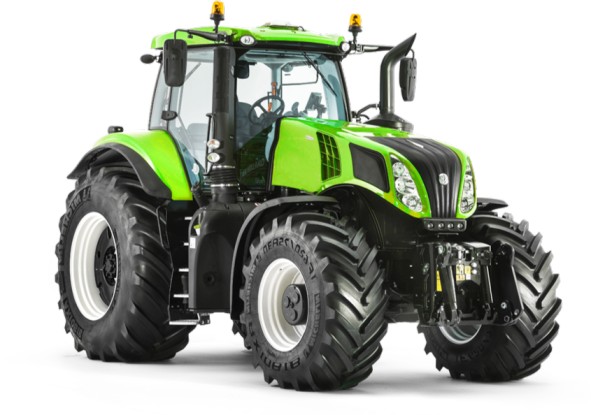Small-scale farming requires efficiency, durability, and reliability from every piece of equipment, especially the tractor. A well-maintained tractor equipped with the right agricultural tractor parts can make a significant difference in the productivity and success of a small farm. This article will explore the essential agricultural tractor parts that small-scale farmers should prioritize to ensure their tractors remain in top condition and are ready to handle various tasks.
1. Engine Components
The engine is the heart of any tractor, making its components some of the most crucial agricultural tractor parts. For small-scale farming, where every piece of machinery must work optimally, keeping the engine in good condition is essential. Key engine components include:
- Air Filters: Air filters prevent dirt, dust, and debris from entering the engine. Regularly replacing air filters ensures that the engine runs smoothly and efficiently, reducing the risk of costly repairs and maintaining fuel efficiency.
- Fuel Filters: Fuel filters protect the engine from contaminants in the fuel. Clean fuel filters help maintain engine performance and prevent clogs that can lead to engine failure.
- Spark Plugs: For gasoline-powered tractors, spark plugs are vital for engine ignition. Regular inspection and replacement of spark plugs ensure reliable starting and efficient fuel combustion.
- Belts and Hoses: Belts and hoses are essential for the proper operation of the engine’s cooling, charging, and hydraulic systems. Regular checks and timely replacements of worn-out belts and hoses prevent breakdowns and costly repairs.
2. Transmission and Drive System Parts
The transmission and drive system play a critical role in the tractor’s ability to perform various tasks. These agricultural tractor parts must be maintained to ensure smooth operation and extend the tractor’s lifespan.
- Transmission Fluid: Transmission fluid lubricates the gears and helps regulate the temperature of the transmission system. Regularly checking and replacing transmission fluid is crucial for preventing wear and tear on the transmission components.
- Clutch: The clutch is responsible for engaging and disengaging the power from the engine to the transmission. A well-maintained clutch ensures smooth gear shifts and prevents excessive wear on the transmission.
- Differential: The differential allows the tractor’s wheels to rotate at different speeds, especially during turns. Proper lubrication and maintenance of the differential are essential for smooth operation and preventing damage to the drive system.
- Axles and Bearings: Axles and bearings support the tractor’s weight and enable smooth wheel rotation. Regular inspection and lubrication of these parts help prevent wear and extend their lifespan.
3. Tires and Wheels
Tires and wheels are fundamental agricultural tractor parts that directly impact the tractor’s performance, fuel efficiency, and safety. For small-scale farmers, choosing the right tires and maintaining them is crucial for maximizing productivity.
- Tire Type: Depending on the terrain and tasks, selecting the appropriate tire type is essential. R1 (agricultural) tires are ideal for soft, muddy fields, while R3 (turf) tires are better suited for grassy areas where minimal ground disturbance is necessary.
- Tire Pressure: Maintaining the correct tire pressure is vital for optimal traction, fuel efficiency, and tire longevity. Underinflated tires can cause uneven wear, while overinflated tires may lead to a rough ride and increased risk of punctures.
- Wheel Alignment: Proper wheel alignment ensures even tire wear and improves fuel efficiency. Regular checks and adjustments to wheel alignment prevent unnecessary strain on the tractor’s tires and steering components.
4. Hydraulic System Components
The hydraulic system is responsible for powering various attachments and implements, making it a critical aspect of a tractor’s functionality on a small-scale farm. Key hydraulic system components include:
- Hydraulic Fluid: Hydraulic fluid is essential for transmitting power to the tractor’s attachments, such as loaders, plows, and seeders. Regularly checking and replacing hydraulic fluid ensures smooth operation and prevents damage to the hydraulic system.
- Hydraulic Hoses: Hydraulic hoses carry the fluid between the pump and the implements. Inspecting hoses for wear, cracks, or leaks and replacing them when necessary prevents hydraulic system failure.
- Hydraulic Pump: The hydraulic pump generates the pressure needed to operate the tractor’s attachments. Regular maintenance and timely replacement of the pump keep the hydraulic system functioning efficiently.
5. Electrical System Parts
The electrical system is another vital component of a tractor, especially for starting the engine and operating lights, sensors, and other electronics. Essential electrical agricultural tractor parts include:
- Battery: The battery provides the necessary power to start the engine and operate electrical components. Regularly checking the battery’s charge and cleaning the terminals ensure reliable performance.
- Alternator: The alternator charges the battery and powers the electrical system while the tractor is running. Ensuring the alternator is in good condition prevents electrical failures and prolongs battery life.
- Starter Motor: The starter motor initiates the engine’s ignition process. Regular inspection and maintenance of the starter motor are essential for reliable engine starts.
- Wiring and Fuses: The wiring and fuses connect and protect the tractor’s electrical components. Regular inspection of wiring for damage and replacing blown fuses prevent electrical malfunctions.
6. Implements and Attachments
Implements and attachments are essential for maximizing the versatility of a small-scale tractor. These agricultural tractor parts enable the tractor to perform a wide range of tasks, from plowing and planting to mowing and hauling.
- Three-Point Hitch: The three-point hitch is a standard attachment system that allows the tractor to connect with various implements, such as plows, tillers, and mowers. Regularly inspecting and maintaining the hitch ensures safe and secure attachment of implements.
- PTO (Power Take-Off): The PTO transfers power from the tractor’s engine to implements like mowers, balers, and pumps. Keeping the PTO shaft and connections clean and well-lubricated ensures efficient power transfer and reduces wear.
- Loaders and Backhoes: Loaders and backhoes are versatile attachments that can be used for digging, lifting, and moving materials. Regular maintenance of these attachments ensures they remain in good working condition and extend their lifespan.
7. Maintenance Tools and Spare Parts
To keep a small-scale farming operation running smoothly, it’s essential to have the right maintenance tools and spare parts on hand. These include:
- Oil Filters and Fluids: Keeping spare oil filters and fluids ensures that routine maintenance tasks, such as oil changes, can be performed promptly, reducing downtime.
- Grease and Lubricants: Regular lubrication of moving parts, such as joints, bearings, and chains, prevents wear and extends the lifespan of agricultural tractor parts.
- Spare Belts and Hoses: Having spare belts and hoses on hand allows for quick replacements in case of a breakdown, minimizing disruptions to farm operations.
You may also read: Agriculture Soil Sampling and Testing Market
Conclusion
For small-scale farmers, maintaining a tractor equipped with essential agricultural tractor parts is crucial for maximizing productivity and ensuring the success of their farming operations. By prioritizing the right engine components, transmission and drive system parts, tires and wheels, hydraulic system components, electrical system parts, and implements and attachments, farmers can keep their tractors running smoothly and efficiently. Additionally, having the necessary maintenance tools and spare parts readily available helps minimize downtime and keep the farm running at peak performance. Investing in high-quality agricultural tractor parts and performing regular maintenance ensures that your tractor remains a reliable and valuable asset on your farm.



